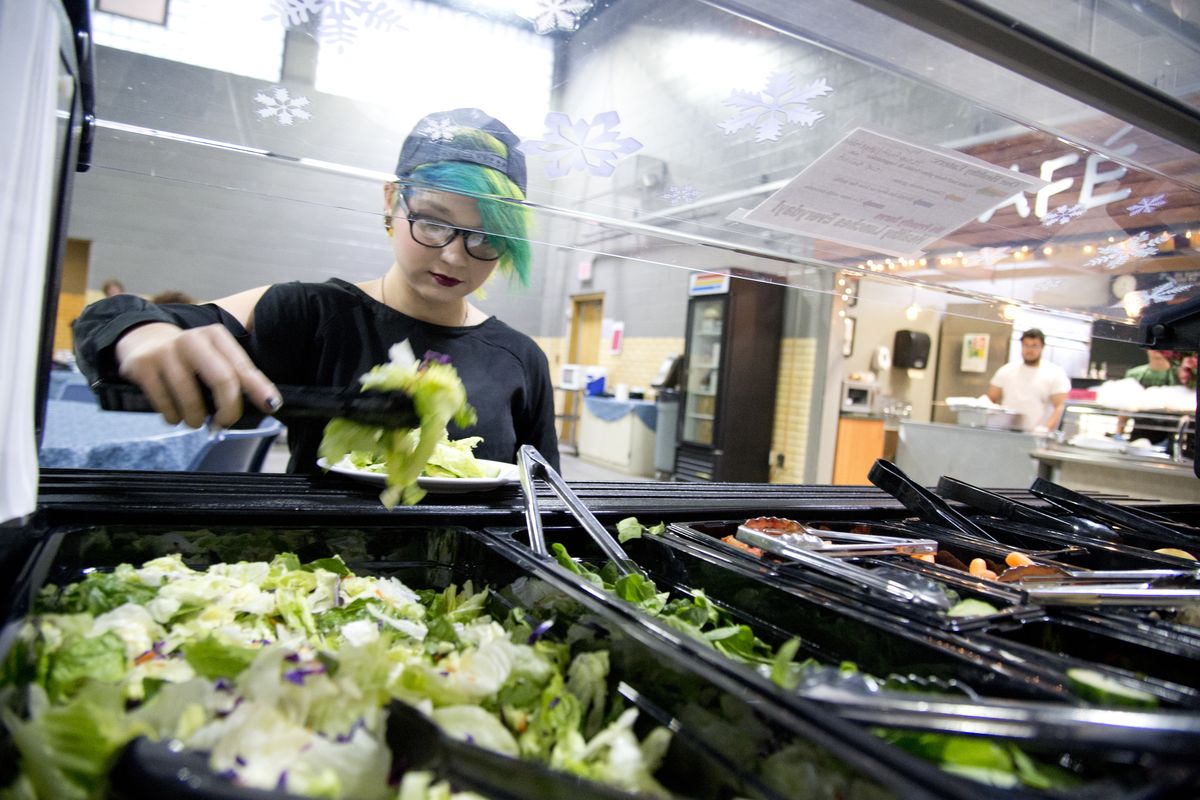No debate: Area schools’ cafeterias offering nutritional lunches

While Spokane students are piling roasted chicken and homemade red potato fries onto their plates, other students around the country will still be eating canned vegetables packed with sodium and previously frozen meat.
Congress on Thursday approved a spending plan that allows schools more time to comply with new federal standards requiring that they cut down on sodium and boost the amount of whole grains in school lunches. Nutrition directors nationally have complained that they’re losing money from the new standards because so many students stopped eating school lunches and because the fresh fruits and vegetables and whole grains cost more.
“Micromanaging school lunch is not conducive,” said Audrey Scagnelli, a spokeswoman for U.S. Rep. Cathy McMorris-Rodgers, who supported easing the nutrition standards. The budget legislation will help reduce the red tape around school lunches, the spokeswoman said, and give school districts the option of deciding where those dollars go.
Patricia Montague, CEO of the School Nutrition Association, said in a statement earlier this week: “USDA’s regulations are well-intended, but have resulted in unintended, adverse consequences. Since the new standards took effect, 1.5 million dissatisfied students have given up on school meals, taking their lunch money with them.” Montague’s association represents 55,000 school nutrition directors nationwide.
The spending bill allows schools that can demonstrate difficulty in meeting the standards to apply for an exemption.
High school students in Spokane’s largest district often order out for Jimmy John’s deliveries at lunch, but Spokane Public Schools officials say they won’t ask for a waiver. Meal planners there started bringing in healthier food ahead of the Healthy, Hunger-Free Act requirements.
“We started going whole grains a few years ago,” said Doug Wordell, the district’s nutrition services director. “We started increasing fruits and vegetables gradually. I think we’re fortunate that we started this process early.”
Wordell added, “We really work hard on food costs. We also work hard on menus and finding items to get food in kids’ stomachs and not in garbage cans.”
Salt has been taken off tables, nothing is deep fried, and starting next year food will be made from scratch at eight more district schools. The Community School piloted the district’s from-scratch meal program in 2012. A local nonprofit, the Empire Health Foundation, funded training for that school’s chef.
Last month, the foundation awarded Spokane Public Schools a $1 million grant to expand the program.
Scratch cooking is about local farmers, local suppliers, clean labels and fresh foods, Wordell said.
New menus are in the works, and food is being taste-tested in preparation for from-scratch cooking at Stevens, Logan, Ridgeview, Madison, Garfield, Lidgerwood, Moran Prairie and Roosevelt elementaries starting in the fall. The Montessori School also serves from-scratch meals.
“Spokane has a high rate of free and reduced meals,” so lots of children depend on school food, said Antony Chiang, president of the Empire Health Foundation. “Instead of training their palate to like chicken nuggets and French fries, we are trying to change that.” A new report released this week shows that 7 in 10 Americans are overweight.
Cheney School District, which has about 4,000 students, does all of its cooking from scratch. The program launched in fall 2011 by partnering with the foundation. The switch has helped kids lose weight, and after two years, it became cost-neutral.
“With the addition of Spokane’s elementary schools, that will double the number of kids we will be able to reach, raising it to about 3.5 million meals annually,” Chiang said. “To their credit, when you think about the number of meals they serve each day, this is no small change.”
While McMorris-Rodgers thinks federal regulations requiring healthier meals are over-reaching, she wants schoolchildren to have access to healthy options, said Scagnelli, her spokeswoman. The congresswoman is “very excited to see Spokane implementing changes,” she said.